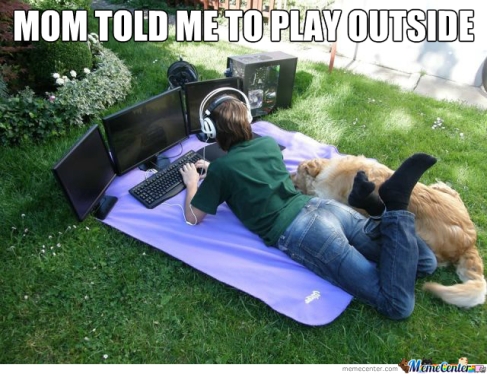The Internet has provided us with endless opportunities to generate things we never could have imagined. To personalizing your own sneakers to creating an virtual community on Second Life, there is so much you can do. The interactivity of the web has created a new culture, and with that there are certainly pros, as well as cons.
In his writing, Mark Andrejevic introduces the idea of an iCulture. Between iCommerce and iPolitics, Andrejevic highlights the interactivity of the Internet and the way society has been transformed by it. We are now cultural producers and consumers through our use of the web. This has created a huge boom in e-commerce because now consumers can generate their own personalized products. This is a great marketing scheme for companies. The interactivity Internet users now have with companies and other users has created an interesting culture of synthetic worlds. Aside from the business progression through the Internet, there has also been a large rise in social communities online.
Although the interactivity of the Internet is a great help to e-commerce, virtual worlds have begun to put a strain on real life relationships. The strong interactions users can find online cause them to zone in and ignore the real world around them. Edward Castronova writes, “synthetic worlds already seem to impose significant relationship stress.” It is hard to have a relationship with someone off-line, if they are constantly spending time in an online world. Being engulfed in a game like Second Life is much different than dealing with someone who is constantly reading a book. The book does not interact with the reader, but the avatars in an online community do. It appears that some people rather spend time with these online avatars than with those around them. That is what puts a strain on relationships.
By taking a look at these different points of view, it has really shown me that the Internet is both a blessing and a curse. Going back to the personalized sneaker example, I myself have created a Nike iD shoe online. I felt like I was just another producer at the Nike company and it really made me want to buy the shoe. However, I still would much rather speak with a real person and have there help in creating the product. I do not like to trust a website to assure my order is perfect. I have also immersed myself into Second Life to experience the communities that have formed on there. It was crazy to see how much time people actually spend in SL. I can never imagine myself forming strong relationships in online communities. I guess my biggest concern is it is hard to trust everything you find on the Internet.
In the end, I would still rather see a product in person before I buy it. I would still rather talk face-to-face with a person instead of their avatar. I understand we have to deal with this new generation of e-commerce and these new synthetic worlds. I am just worried we are going to let them overpower us. People no longer go outside and smell the roses, for lack of a better phrase. We are all attached to our devices. We have to find that healthy divide between real life and virtual life. If we are so focused in these synthetic cultures, we will miss all of the amazing things the real world has to offer.


